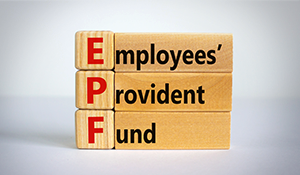What does it take for an HR admin to tackle EPF problems like a pro?
Who better to answer this than an industry expert and HR veteran with 26+ years of experience in cross-cultural work environments? So, we invited Ravi Mishra, Sr.Vice President‒HR, Advanced Materials Business, Aditya Birla Group, for our Parichay‒Ask the Expert webinar.
Ravi enlightened the attendees with practical advice and real-life examples. We highly recommend that you watch the webinar recording and see for yourself. We have distilled the top 6 takeaways from the session in this blog.
1. Master the EPF Act
As an HR professional, you need to thoroughly read and understand the definition and purpose of the EPF Act. Only then can you spread awareness about its eligibility criteria, entitlements and implications. There’s no better way to help your employees understand the value of EPF in their financial planning efforts.
2. PF Nominations Are Important
Every employee needs to nominate one or more family members in the EPF account and keep them informed. It is also the responsibility of HR to assist these members in the event of an unforeseen incident, especially when they reach out to the organisation.
If an employee has become a new parent or has lost a parent, it is this individual’s responsibility to inform the organisation in writing and make the necessary changes to the nomination details.
3. Get Compliance Done on Day One
In many cases, there is a delay in completing the compliance documentation of a new employee. Every HR team should follow a checklist and complete the requirement as soon as an employee joins. Nobody should miss out on the benefits and entitlements due to unwarranted delays.
A shocking story and a helping hand
An employee met with a fatal accident on his first day in his plant. Tragically, he hadn’t completed his PF documentation when the incident happened. What followed is anybody’s guess: A nightmare for his family. But, yes, they struggled and got the dues finally after six long years!
4. Make a Difference Through Accurate Filing
Information errors and discrepancies can lead to delays and issues in the PF formalities. So it is important to maintain accuracy and uniformity of the details filed (e.g., same name spelling everywhere). Employees must also be made accountable for changes, if any. Moreover, it is now mandatory to link the PF account and Aadhar Card. This is a must for receiving pension or other dues without any hassle.
5. Educate Your Contract Workers
Noncompliance is quite common in the case of contract workers. Since they lack the knowledge or facilities, they are not aware of their employment rights. Hence HR should take extra care to enlighten them by organising exclusive sessions. This will help minimise the chances of contractors exploiting their workers.
6. Invite an EPF Official
Many officials would be more than happy to deliver a PF awareness session at your premises. You can request one of them to come over to your workplace so that your employees can clarify all their doubts directly. It’s also an opportunity for HR to rectify documentation errors, if any. This proactive initiative will reflect and boost the credibility of the organisation.
Concluding Notes
When it comes to EPF, both employers and employees face several challenges. But HR can tackle this by rising beyond compliance checklists and guiding their employees whenever required. When these employees get the best of the EPF services, they are more likely to speak about how their organisation values them. This is employer branding in the true sense.








